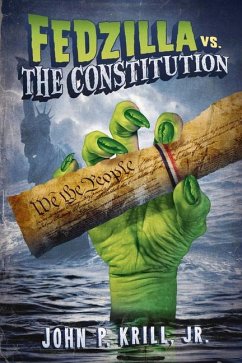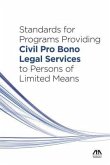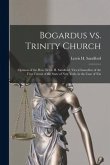In 1788, the Constitution of the United States created a federal government of limited powers. Everyone agreed that any power not on the list of 18 "enumerated" powers was retained solely by the states or the people. Yet, today, federal bureaucrats decide what our children should eat for lunch at school, the kind of pajamas they wear, the type of bulbs we screw into lamps and more. Most importantly, Washington decides how much of the money we earn we deserve to keep and how much it believes it can put to better use. The Constitution has been turned upside down. The federal government has practically all the power and the states are left with only the occasional bones thrown to them from Washington. How did this happen? Fedzilla vs. the Constitution explains how a government given limited powers mutated into the behemoth it is today. Issue by issue, the book shows how it was done, starting with the administration of George Washington and continuing through the Obama Administration. "Fedzilla vs. The Constitution" explains why limited government at the federal level is still needed and is what the real Constitution requires.
Hinweis: Dieser Artikel kann nur an eine deutsche Lieferadresse ausgeliefert werden.
Hinweis: Dieser Artikel kann nur an eine deutsche Lieferadresse ausgeliefert werden.




![The Great Defect in the Law of Evidence in Civil Suits in Canada [microform]: With Appendix: Suggested by a Recent Case of Rimmer Vs. McGibbon The Great Defect in the Law of Evidence in Civil Suits in Canada [microform]: With Appendix: Suggested by a Recent Case of Rimmer Vs. McGibbon](https://bilder.buecher.de/produkte/65/65624/65624606m.jpg)
![In the Queen's Bench, Appeal Side [microform]: William McNown, (plaintiff in the Court Below), Appellant, Vs. Alexandre Madore, (defendant in the Cour In the Queen's Bench, Appeal Side [microform]: William McNown, (plaintiff in the Court Below), Appellant, Vs. Alexandre Madore, (defendant in the Cour](https://bilder.buecher.de/produkte/65/65516/65516468m.jpg)
![In the Supreme Court of British Columbia [microform]: the Queen Vs. Allan McLean ... [et Al.] Indicted, Found Guilty, and Sentenced to Death for the M In the Supreme Court of British Columbia [microform]: the Queen Vs. Allan McLean ... [et Al.] Indicted, Found Guilty, and Sentenced to Death for the M](https://bilder.buecher.de/produkte/66/66197/66197866m.jpg)
![Review of the Judgments of the Supreme Court in the Queen Vs. Joseph Chasson [microform] Review of the Judgments of the Supreme Court in the Queen Vs. Joseph Chasson [microform]](https://bilder.buecher.de/produkte/66/66195/66195925m.jpg)
